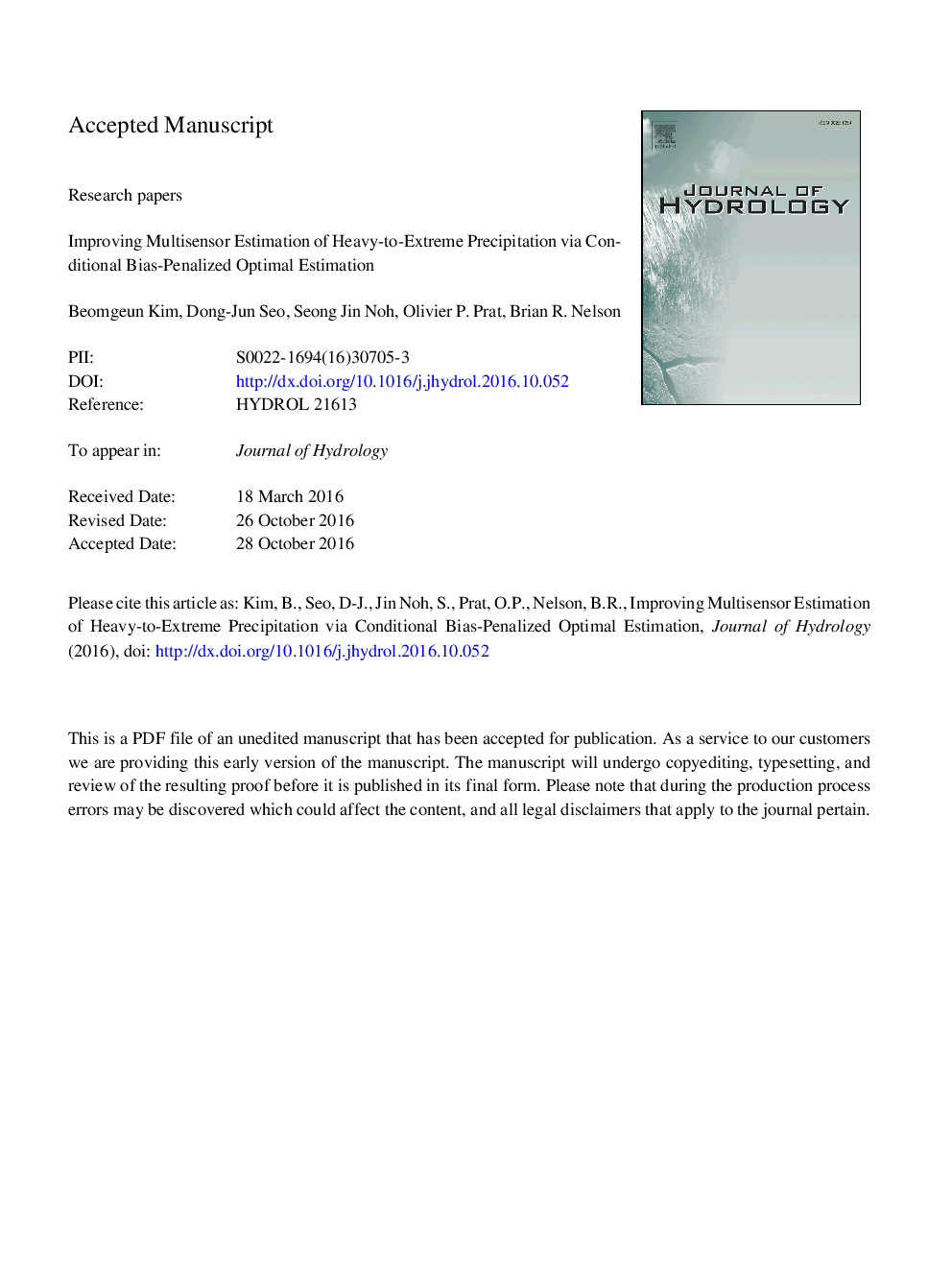| Article ID | Journal | Published Year | Pages | File Type |
|---|---|---|---|---|
| 8895224 | Journal of Hydrology | 2018 | 53 Pages |
Abstract
A new technique for merging radar precipitation estimates and rain gauge data is developed and evaluated to improve multisensor quantitative precipitation estimation (QPE), in particular, of heavy-to-extreme precipitation. Unlike the conventional cokriging methods which are susceptible to conditional bias (CB), the proposed technique, referred to herein as conditional bias-penalized cokriging (CBPCK), explicitly minimizes Type-II CB for improved quantitative estimation of heavy-to-extreme precipitation. CBPCK is a bivariate version of extended conditional bias-penalized kriging (ECBPK) developed for gauge-only analysis. To evaluate CBPCK, cross validation and visual examination are carried out using multi-year hourly radar and gauge data in the North Central Texas region in which CBPCK is compared with the variant of the ordinary cokriging (OCK) algorithm used operationally in the National Weather Service Multisensor Precipitation Estimator. The results show that CBPCK significantly reduces Type-II CB for estimation of heavy-to-extreme precipitation, and that the margin of improvement over OCK is larger in areas of higher fractional coverage (FC) of precipitation. When FCÂ >Â 0.9 and hourly gauge precipitation is >Â 60Â mm, the reduction in root mean squared error (RMSE) by CBPCK over radar-only (RO) is about 12Â mm while the reduction in RMSE by OCK over RO is about 7Â mm. CBPCK may be used in real-time analysis or in reanalysis of multisensor precipitation for which accurate estimation of heavy-to-extreme precipitation is of particular importance.
Related Topics
Physical Sciences and Engineering
Earth and Planetary Sciences
Earth-Surface Processes
Authors
Beomgeun Kim, Dong-Jun Seo, Seong Jin Noh, Olivier P. Prat, Brian R. Nelson,
